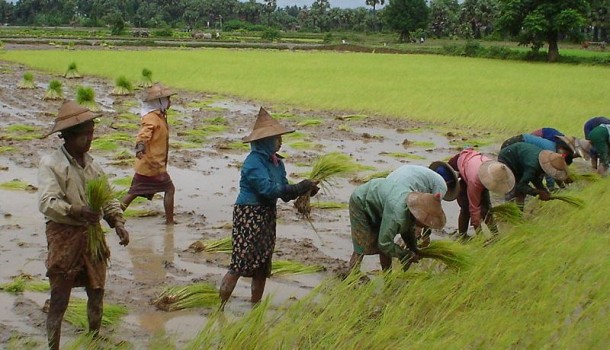RANGOON — Burma’s Ministry of Agriculture and Irrigation announced this week that it will increase loans to farmers by 200,000 kyat (US $230) per acre from the current 800,000 kyat after farmers complained that low paddy prices had left them unable to plant winter crops such as beans and pulses.
“The Myanmar Farmers Association [MFA] sent a letter to the president asking him to increase the size of loans for summer crops because farmers have suffered from natural disasters over the past two years,” said MFA President Soe Tun.
“Inputs to grow paddy are also increasing, as wages are rising and farmers have to buy fertilizers and pesticides on credit. At current market prices for paddy, they can’t recover their investment,” he added.
The size of the loans will vary according to the season. The government will provide loans of 50,000 kyat per acre for rainy season crops—up from 40,000 kyat last year—but will lend double that amount for winter crops. The Myanmar Agricultural Development Bank will also offer low-interest loans of 10,000 kyat per acre for winter crops.
While the government will continue to provide loans only for a maximum of 10 acres of farmland, it has decided to extend the deadline for repayment until May due to the effects of last year’s inclement weather.
“The government has extended the repayment deadline and increased the size of loans, but it is still not enough for some farmers. Therefore, we will ask the agricultural department to support all paddy fields without restrictions, so that farmers are motivated to grow more crops,” said Soe Tun.
Meanwhile, more than 400 farmers in Irrawaddy Division have also sent a letter to the government asking for an increase in the size of loans.
“The loans for winter crops are only 10,000 kyat, but we want that increased to 20,000 kyat per acre, because growing costs are increasing and it’s very difficult to find labor,” said Min Naing, a farmer with 13 acres in Irrawaddy Division.
The reason for the labor shortage is that many young people are going abroad to find work, according to local people.

















